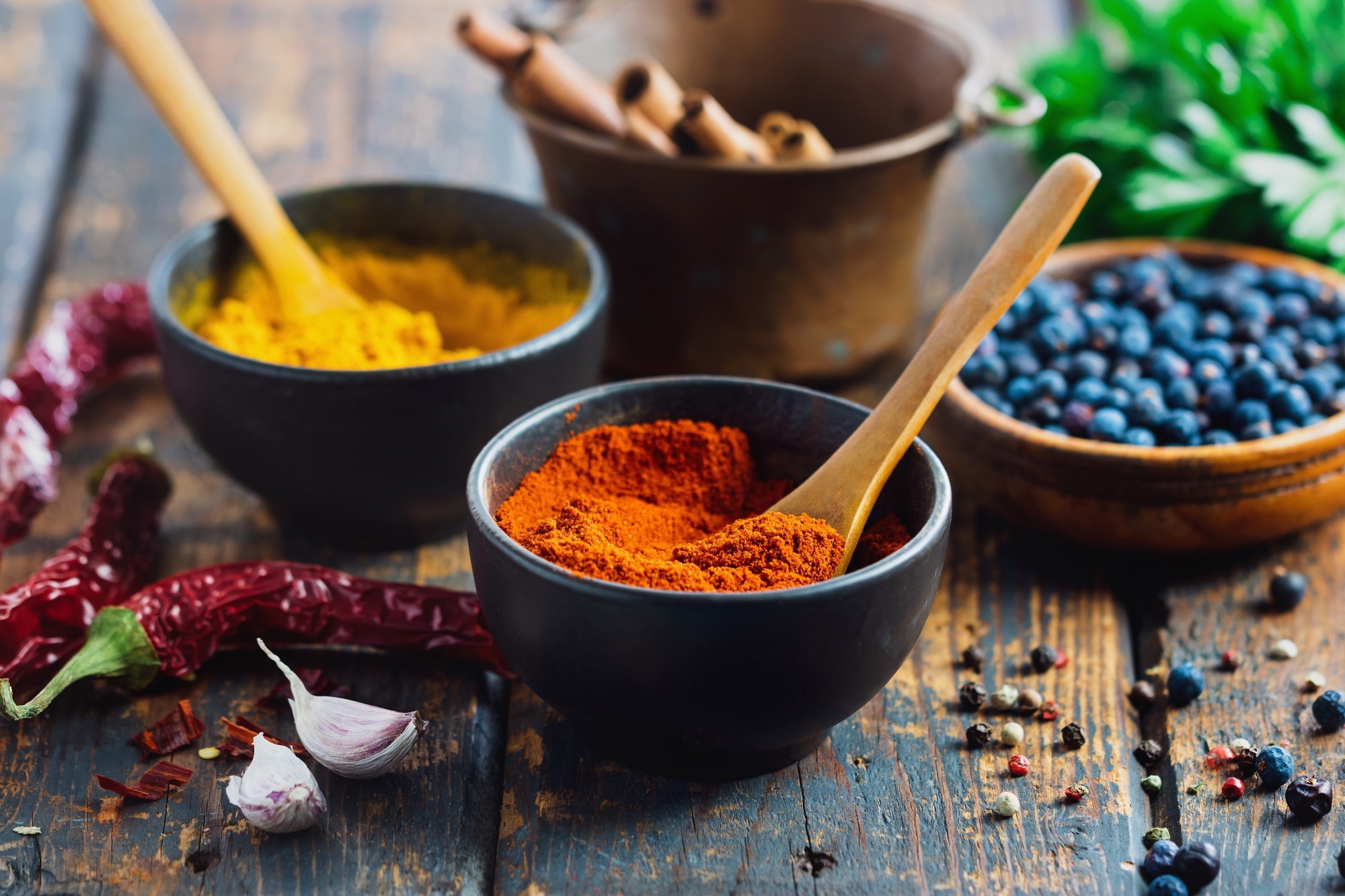DM is a metabolic disorder characterized by high blood glucose levels due to impaired insulin release, action, or both by pancreatic beta cells that maintain glucose homeostasis.
 Study: Protective Effects of Medicinal Plant-Based Foods against Diabetes: A Review on Pharmacology, Phytochemistry, and Molecular Mechanisms. Image Credit: Melica/Shutterstock.com
Study: Protective Effects of Medicinal Plant-Based Foods against Diabetes: A Review on Pharmacology, Phytochemistry, and Molecular Mechanisms. Image Credit: Melica/Shutterstock.com
Background
An unexpected rise in diabetes prevalence and associated medical expenses have prompted people to adopt holistic approaches to diabetes management.
The World Health Organization (WHO) estimates that ~80% of the global population has opted for traditional medicine as a primary healthcare option, especially in low- and middle-income countries (LMICs). Accordingly, many traditional medicinal systems, including Chinese Medicine, Unani, and Ayurveda, have emerged as viable alternatives.
These systems use medicinal plants (e.g., turmeric, garlic, onion, tulsi) to combat diabetes. Microbes have also shown potential as a source of anti-diabetic compounds, e.g., acarbose, a pseudo-oligosaccharide derived from Actinomycetes species.
Studies also describe some venom-derived compounds possessing anti-diabetic properties. Published literature mentions >800 medicinal plants with antidiabetic properties due to their bioactive compounds or phytochemicals; moreover, these have fewer side effects than synthetic drugs.
Disease biology
Type 1 and type 2 diabetes (T2D) are common, though T2DM accounts for ~90 to 95% of cases. The former manifests as the autoimmune destruction of pancreatic β-cells due to insulin insufficiency, which raises the levels of free fatty acids in the blood by triggering lipolysis.
On the other hand, T2DM is typically genetic and associated with obesity-triggering a low capacity of β-cells to secrete insulin and insulin resistance (IR). Gestational diabetes is another type of diabetes that heightens fetal–maternal complications.
Up to 50% of diabetic patients experience organ damage and micro and macrovascular complications, including cerebrovascular diseases.
Currently available antidiabetic drugs, e.g., dipeptidyl peptidase-4 (DPP-4) inhibitors and thiazolidinediones (TZDs), work by reducing the incidence of vascular complications but are inaccessible due to their higher rates for millions of people in LMICs.
Several epidemiological studies have shown that plant-based diets have phytoconstituents that help manage diabetes by reducing dependence on medications and preventing diabetic complications.
The range of phytochemicals in vegetables, fruits, herbs, spices, and nuts is immense. They have flavonoids, anthocyanins, saponins, tannins, and carotenoids with anti-diabetic properties.
They exert their health benefits, antioxidant, immunomodulatory, anti-hyperlipidemic, anti-inflammatory, and anti-hyperglycemic effects via different mechanistic pathways in different organs, liver, intestine, pancreas, skeletal muscle, and adipose tissue.
Antidiabetic effects of medicinal plant-based foods
Previous studies have shown the antidiabetic effects of phytochemicals in plant-based foods. Some examples include allicin from garlic, flavonoids from chickpeas, cinnamaldehyde from cinnamon, anthocyanidins from cabbage, carotenoids from saffron, thymoquinone from black cumin, organic acids in chilgoza nuts, procyanidins from pistachios, alkaloid piperine from black pepper, and curcuminoids from ginger.
In pre-clinical DM models, plant-based food products reduced oxidative stress-induced damage and increased insulin secretion. They also helped maintain lipid profiles, regulate blood glucose levels, decrease LDL, and increase HDL cholesterol levels. In addition, their consumption could avert nutritional deficiencies compared to non-vegetarian diets.
Furthermore, excessive fiber consumption might avert digestive issues such as bloating, gas, etc. Even though, most plant-based diets, e.g., Nigella sativa, are well-tolerated and non-toxic at high doses, thus, maintaining a balance is important.
Structure–activity relationship (SAR) studies have helped understand how minor modulations in a vast array of bioactive compounds found in medicinal plants could modulate antidiabetic activity.
SAR analysis has demonstrated that alkaloids derived from medicinal plants, e.g., such as Zingiber officinale and Piper nigrum, are becoming increasingly important for antidiabetic drug discovery.
Conclusions
The use of medicinal plant-based foods goes back to ancient times. However, there is inadequate scientific evidence of the safety of consuming them with synthetic antidiabetic drugs as they might have unwanted side effects and interactions.
Also, evidence is lacking for the safety of consuming them in higher quantities and their long-term effects on health.
Till then, people should practice caution when using medicinal plants for DM management, even though phytochemicals have demonstrated promising antidiabetic activity in vitro. Future high-quality clinical trials could further validate their efficacy and establish their therapeutic index.
More insights into the effectiveness of medicinal plants derived phytochemicals, their mode of action, pharmacokinetics, and potential adverse effects could lead to the developing novel, more cost-effective plant-based medicines for DM management, especially in LMICs.